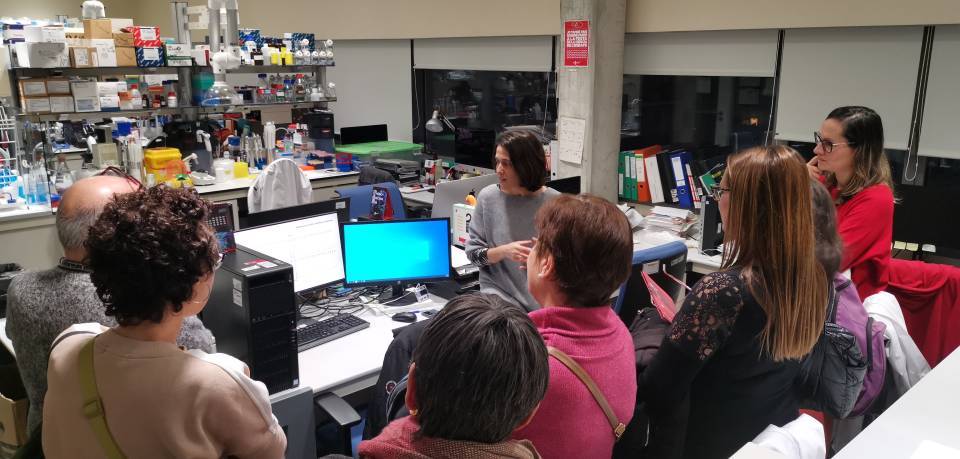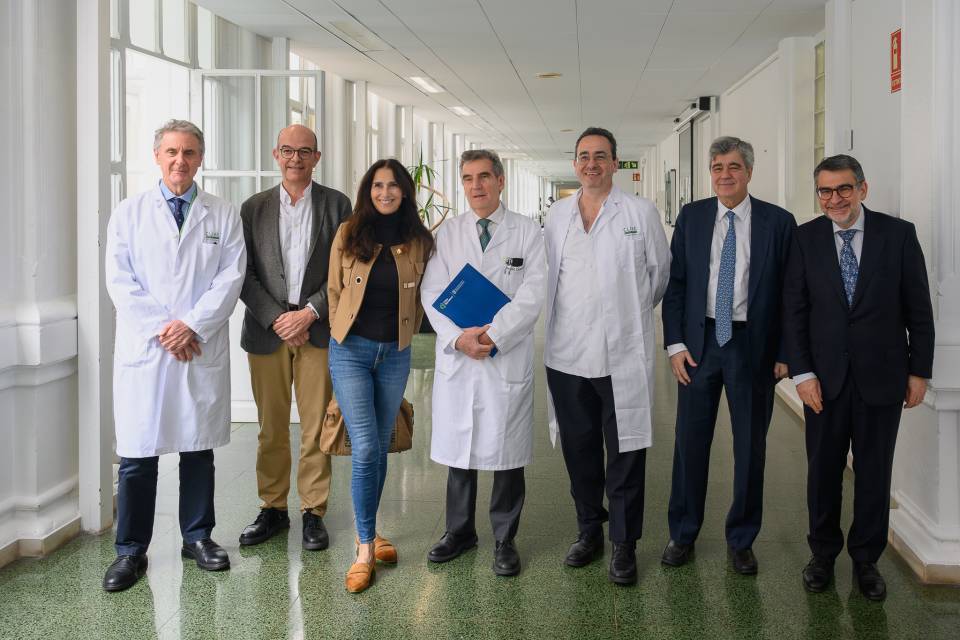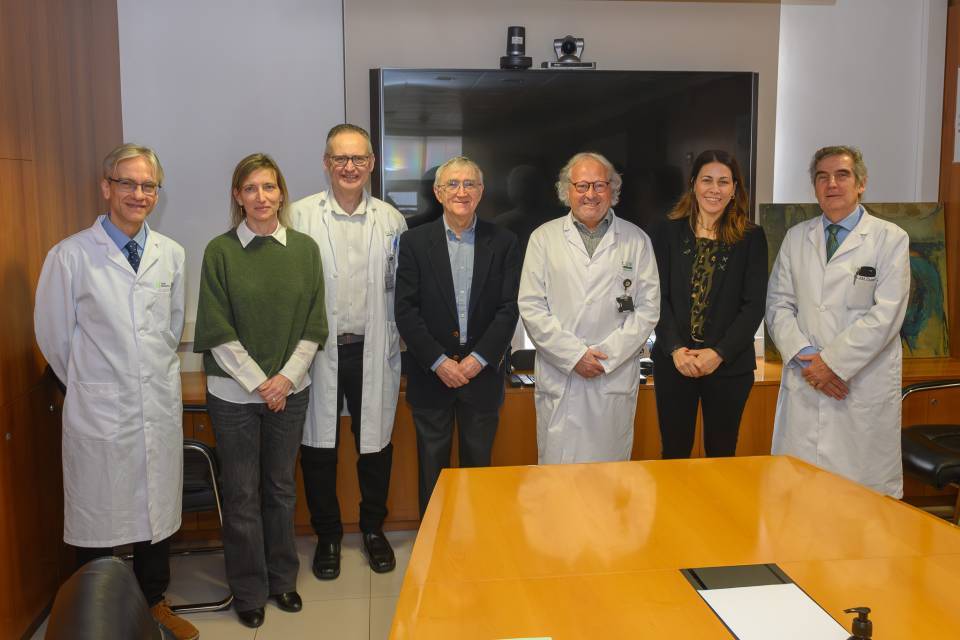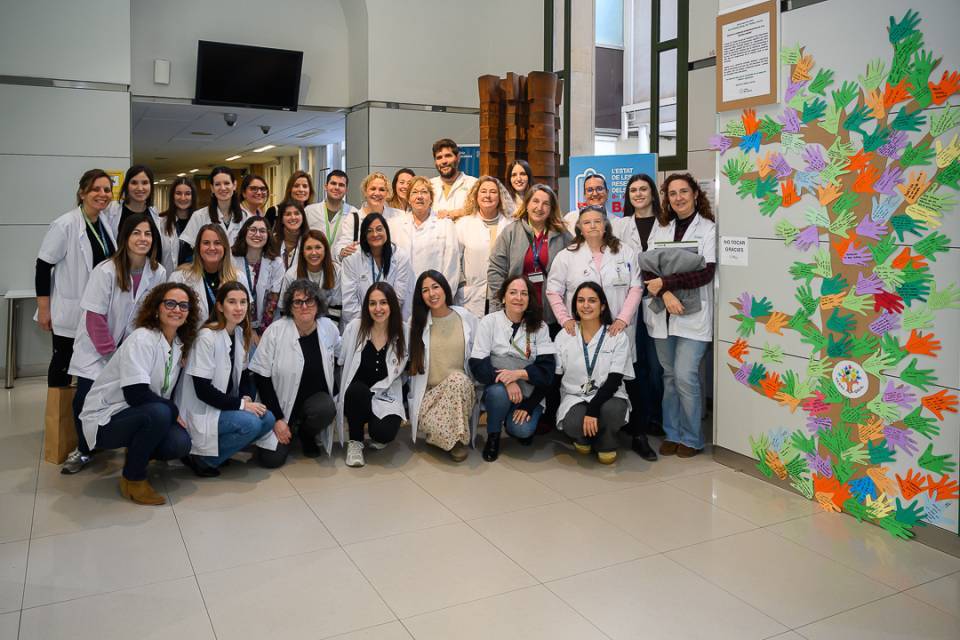Three groups of volunteers from the Spanish Association Against Cancer (AECC) have visited IDIBAPS to learn first-hand about the cancer research carried out by different research groups at the Institute.
The AECC is a non-profit organization formed by patients, families, volunteers, collaborators, and professionals that works to educate in health, support and accompany sick people and their families, and finance research projects that will allow a better diagnosis and treatment of cancer.
During the first two visits, which took place on January 31 and February 1, Sergi Castellví-Bel, leader of the IDIBAPS group Genetic predisposition to gastrointestinal cancer, and his team showed visitors the first results of their project on genetic factors associated with the development of colon cancer in adolescents and young adults. This line of research receives funding from the AECC. The volunteers also had the opportunity to visit the laboratory where the researchers work, as well as to observe some cellular models used in the project. The visits ended at the IDIBAPS biobank facilities, which coordinates the collection, processing, storage and release of human biological samples.

Aleix Prat, head of the IDIBAPS Translational genomics and targeted therapies in solid tumors group, received the volunteers on Thursday, February 2. Prat and his team are working on the development of biomarkers to assess drug response and help identify better treatments for patients with solid tumors. As a result of their work, the spin-off company Reveal Genomics, also led by Prat, announced in early 2022 the commercialization of the HER2DX test, the first worldwide that allows the personalization of HER2-positive (HER2+) breast cancer treatment. AECC volunteers showed great interest in this line of work, actively asking about the results and future prospects of the researchers' research.

The meetings between patients, patient associations, volunteers, relatives, and researchers are part of a project initiated by the IDIBAPS Communication Office in March 2022, which is supported by the Spanish Foundation for Science and Technology (FECYT). The activity has resumed in early 2023, in collaboration with the AECC, on the occasion of World Cancer Day on February 4.




